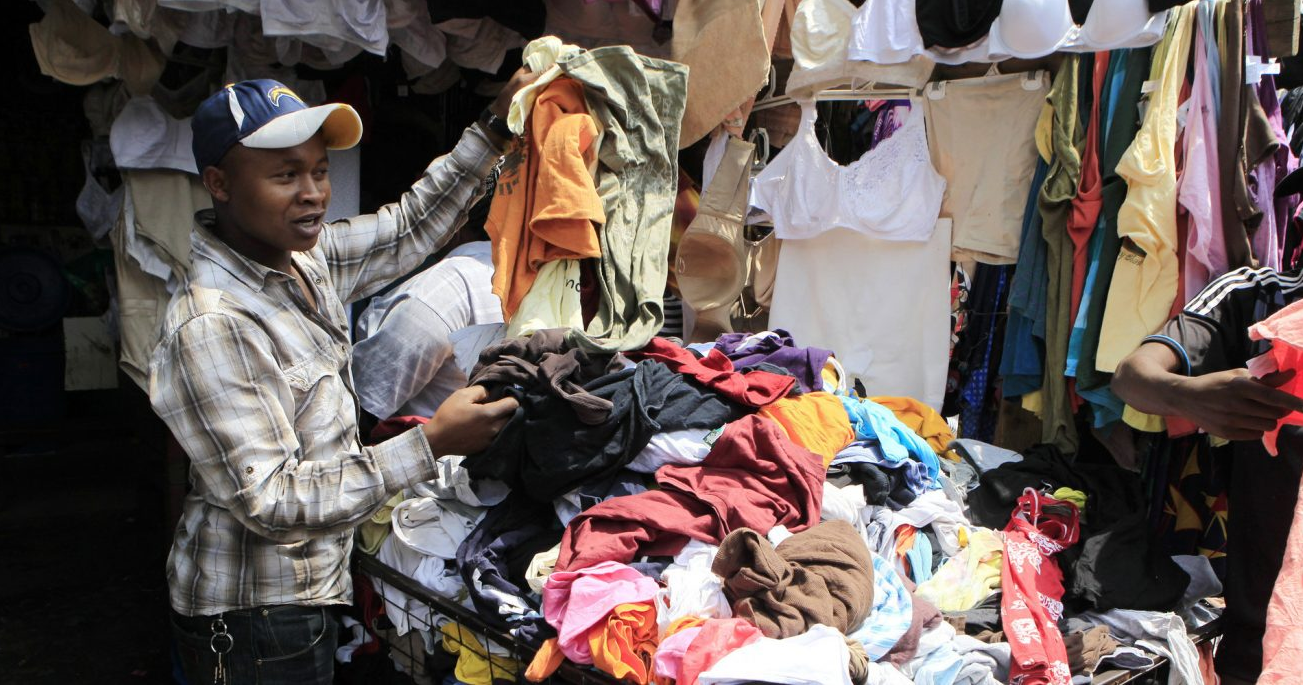Importation of second-hand clothes and shoes has been banned in Kenya as part of efforts by the government to contain the spread of Coronavirus, potentially pushing thousands of traders out of business and ruining the livelihoods of millions.
Kenyans will be forced to spend more on body and footwear items as locally made products often come at a higher price compared to second-hand imports. Manufacturers attribute this to the higher cost of production in Kenya.
The directive announced by the Kenya Bureau of Standards (KEBS) on 31st March 2020, while a precautionary measure to combat the Coronavirus (Covid-19) pandemic, will offer direct benefits to local manufacturers like Rivatex and Bata Shoe Company.
Mitumba exporters
“As a precautionary measure, KEBS wishes to notify the General Public and all importers of used garments (Mitumba) and used shoes that the importation of used garments and footwear is hereby prohibited with immediate effect until further notice,” said Lt. Col. (Rtd) Bernard Njiraini, the KBS Managing Director.
Mr Njiraini said the move follows the declaration of COVID-19 as a global pandemic and in line with the requirements of the applicable Kenya Standards. He said according to “the codes of practice for inspection and acceptance of used garments (mitumba) and used footwear, no consignment of used garments and used foot wears shall be accepted from a country experiencing an epidemic.”
Most of the second-hand imports come from China and Pakistan, with others from USA and UK. Data from the Kenya National Bureau of Statistics indicates that second-hand imports went up by more than 30% to 177,160 tonnes in 2018, raking in Ksh17 billion for the economy.
Mitumba traders protested the moving, saying it would kill thousands of businesses across the country, but the government says it will be good for the local textile sector, which suffers low demand. This will silence Gikomba market in Nairobi, the headquarters of mitumba business in Kenya.
“Mitumba clothing, as has been the custom over the years, undergo rigorous sorting, packing, and fumigation before being shipped into the country, hence their distinct scent,” said the traders in a statement released by the Mitumba Association of Kenya.
SEE ALSO >> Safaricom’s New CEO Takes Over, But Why are Kenyans Worried?
The association said the clothes are inspected, cleared and issued with a certificate of public health from countries of origin, fumigation certificate as well as clearance by Kenya government’s quality agencies to strictly ensure their safety for public use.
Majority of Kenyans, both low-income earners and aspiring middle-class, consume mitumba products, attracted by their low prices and huge variety. Mitumba are hand-me-down items from developed countries which are sold at throw-away prices as a way of clearing waste from source countries, but have offered a lifeline to millions of people in Africa and other developing countries.
Covid-19 effect
The ban comes barely a week after Industrialisation Cabinet Secretary Betty Maina said the government was considering banning the second-hand products, arguing that it would be an opportunity for local textile manufacturers to grow.
“It is going to be difficult finding mitumba going forward and almost 50 percent of our mitumba comes from China and Pakistan,” she said. “It’s going to be more difficult for any goods being shipped after the date of the virus.”













Leave a comment